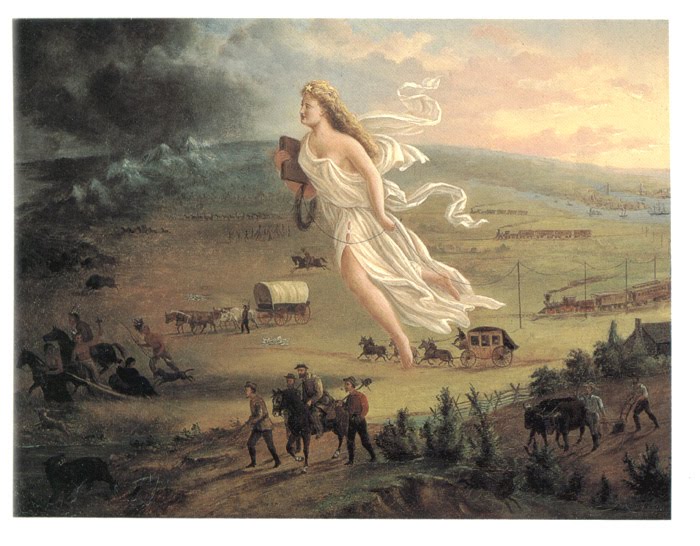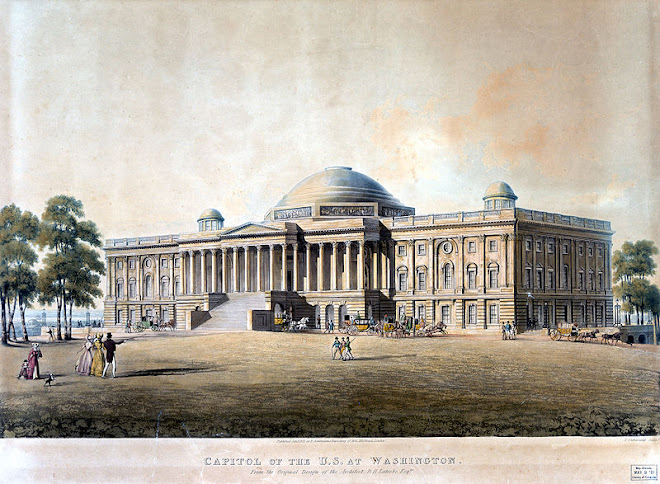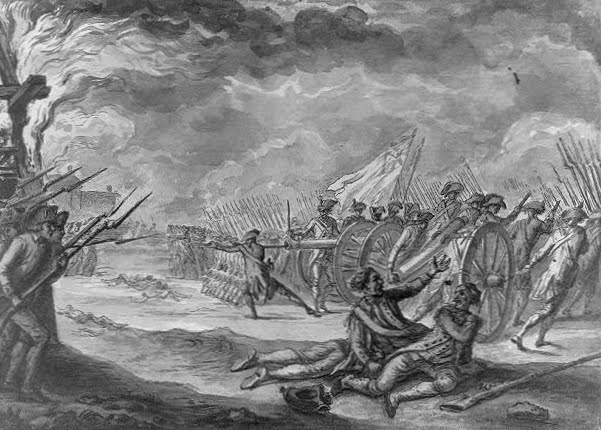It is surely a cliché to say that the economy must serve man and not vice versa. Yet I venture to say that it is a cliché whose implications most people do not grasp. That is, while they would admit, perhaps even proclaim, the economy's necessary subordination to mankind and its needs, they would turn around and in practice deny that by the specifics of their economic views. How is this? The various aspects of human life, both individual and social, are naturally arranged in a hierarchy. The easiest way to illustrate this is through the humble activity of eating and drinking. The primary or fundamental purpose of eating and drinking is nourishment and although it is perfectly proper to enjoy a meal for the sake of good fellowship or legitimate culinary pleasure, we cannot allow our eating to escape its necessary subordination to human nourishment and health. If we eat too much food or the wrong kind of food and thereby injure our health, we have allowed eating to escape its place in the hierarchy of human goods. And in that case we are likely to suffer the consequences, such as obesity, diabetes, alcoholism, cirrhosis of the liver, and the like. Eating has become an end in itself and is no longer in proper subordination to a greater good. Now what of the economy? The economy serves man, certainly, by providing us with the goods and services which are necessary and which properly enhance human life. I am speaking, of course, not just of our bare necessities, but also of those things which make our life on earth more truly human. Again, probably most people would agree on this. But we should note here that the quantity of goods and services which is most beneficial to mankind is not necessarily the greatest amount of goods and services which can be produced with a given amount of labor and capital. The notion of "economic efficiency," as understood by contemporary economic theory, proclaims that the production of the greatest quantity of goods and services possible with a given quantitiy of capital and labor is, for all practical purposes, the summum bonum of human life. But this is not true, because such a quantity of goods does not necessarily render the best service to humanity. All of us certainly need goods, but if we were to fill every nock and cranny of our homes with stuff so that we could hardly move about, that would not be truly serving us and our families. Thus it is not the piling up of more and more goods that makes an economy work well for man, but the provision of a quantity of goods and services that allows both for our survival and provides appropriate enhancement for human life. In addition to this, however, and regardless of the quantity of goods produced, an economy will not serve man if it harms some other important aspect of human life. If an economy directly or indirectly injures family or community life, our cultural life or our relationship with Almighty God, even while providing us with the appropriate amount of goods and services, that economy has violated its proper subordination to the things it is supposed to serve. There can be various reasons why an economy might not accomplish its purpose. On the one hand, these reasons could be political, as was the case in the economies of the Soviet bloc. There the goals of promoting heavy industry and military technology trumped any concern for either the human or natural environment, with the result that farmers were uprooted from their lands and forced onto collective farms and the state showed little or no conern for industrial pollution as long as its political and military goals were accomplished in the economy. Just as communist economies suffered from state-imposed goals that generally conflicted with mankind's real welfare, so capitalist economies likewise do not serve human life in its entirety, although for very different reasons. They do so because they fail to have an understanding of the purpose of an economic system that subordinates it to its true end. Rather they operate on the assumption that the sum total of individual private goals will collectively promote the common good. Generally any attempt to regulate such an economy in the interests of society as a whole and of the true good of man is seen as an infringement on the economic freedom which is considered responsible for the economy's very productivity. To better understand what is at the root of capitalism's deformation of the purpose of an economy, let us look more closely at the nature of capitalism. The essential note of capitalism is the separation of ownership and work.1 We might better understand why this is the crucial factor in determining the nature of capitalism if we make a comparison between the commercial society created by capitalism and a traditional society. Hilaire Belloc aptly contrasted them as follows. But wealth obtained indirectly as profit out of other men's work, or by process of exchange, becomes a thing abstracted from the process of production. As the interest of a man in things diminishes, his interest in abstract wealth - money - increases. The man who makes a table or grows a crop makes the success of the crop or the table a test of excellence. The intermediary who buys and sells the crop or the table is not concerned with the goodness of table or crop, but with the profit he makes between their purchase and sale. In a productive society the superiority of the things produced is the measure of success: in a Commercial society the amount of wealth accumulated by the dealer is the measure of success.2 A capitalist economy necessarily contains a set of people, usually the people with the most economic and political power, who are for the most part not interested in whether the economy serves the common good by producing quality goods and services for meeting people's needs. Rather such people are interested in whether the goods and services their firms produce will sell, will produce profit for themselves. This is because they are at least one step removed from the actual product; whether something is saleable is the question for them, not whether it is useful, helpful or well-made. Therefore to argue for the superiority of capitalism on the basis of the abundance of goods it produces misses the point, because the question is not simply production but production for our reasonable use, of quality goods, in service and subordination to mankind's true needs. I submit that one has only to walk through any mall in the U.S. to see that we produce - or import - vast quantities of goods that contribute nothing toward making human life really better. And by means of advertising, by creating a culture of consumption, both directly and indirectly, much of this stuff is sold, and then in turn must be thrown away, creating additional problems of dealing with our waste, not to mention the far more important effect such consumerism has on our soul, on what John Paul II called "human ecology."3 In addition to the disorientation of our economic activity produced by capitalism, capitalism also helps to destroy a human sense of place. Above I noted the fact that the economies of the Soviet bloc subordinated the goods of human life to political and military goals. If we agree that rootedness is a characteristic of human community that enhances individual lives, then capitalism is the determined foe of this community and its welfare. For as capitalism develops according to its own logic and not only seeks after profit but after more and increasing profit, it requires increasing mobility of both capital and labor. Capitalism is rarely content with level profits, but seeks greater and higher profits. Thus the logic of capitalism is to produce where costs are lowest. An industry hardly thinks twice before picking up and moving to another city, another state, another country. For the people left behind there is no responsibility felt. Their homes, their neighborhoods, their parishes, their schools - none of these are important if the firm can make a greater profit in another place. Yet if we truly think that the economy must serve mankind, then are we not completely reversing things? Are we not elevating only one aspect of human life above human life as a whole, and even the partial good of a small group over the common good? Are we not forgetting that economic activity, like all human activity, is part of a human community that is necessarily embodied in a place? And that our economic activity exists for the sake of that human community? Capitalism by its own logic is not oriented toward fulfilling the real purposes of an economic system. Just as Marxism in practice subordinated human life to political goals, capitalism subordinates human life to private economic goals. One system, however, that does neither, is distributism. Distributism, the system of widely distributed productive property, reunites work with ownership, thus orienting the producer not just toward sales, but toward pride in craftsmanship, care of the community, a realization that his own future is bound up with that of his neighbors, is woven into the texture of life in that particular place. The mere fact that labor mobility would be more difficult in a distributist society militates on behalf of social stability, and indicates a concern for other human goals and needs besides the possession of more goods or money. Probably most economists would say distributism is less economically efficient than capitalism. But we have already seen that economic efficiency, far from being our overarching goal, may actually be a false good. Moreover, if we have a proper understanding of efficiency, is it not always related to some end? And if we no longer accept the mere piling up of goods as a legitimate end of the economy, then we must reject and then rethink the notion of economic efficiency. The summum bonum is not possession of more and more things. Just as Holy Scripture and the greatest of thinkers and sages have often warned us as individuals of the dangers of riches, so society as a whole can be seduced by riches and by a false notion of its own welfare. A word is necessary for those who think that distributism requires a medieval level of technology. Although many aspects of our technological development are highly questionable, there is nothing wrong in principle with unlimited development of technology, provided that it develops in the right direction, in true service to man and without disrupting or injuring any other important social good. Where technology truly requires a large-scale enterprise, then distributism will offer no objection, but I will note that such an enterprise should be jointly owned by those who do the actual work, as Hilaire Belloc recommended in The Restoration of Property.4 Distributism, of course, does not guarantee that all of us will become saints. It does not even eliminate greed, but it does remove the inherent pull in capitalism toward anti-social behavior. A distributist producer needs of course to make a living for himself and his family. But such a producer will tend to be satisfied with making a living, one living, not two or three. In a situation of stability he will tend to accept a customary standard of living and to realize that his own work must fit into a network of other's work in a particular place, that cooperation more than competition must characterize an economy that truly is at the service of mankind. And knowing mankind's propensity toward sin, most distributist theorists have recommended that legal or quasi-legal safeguards be erected to help orient the economy toward justice, the common good, and genuine human prosperity. Hilaire Belloc, for example, suggested that a system of differential taxation be instituted which would prevent the accumulation of excessive productive property. More fitting, in my opinion, would be regulation by means of occupational groups, or guilds, whose rules would ultimately be enforceable by law. But however this is done, distributism's aim is a society in which we can make use of earthly goods in such a way that we can turn our attention to the things that really matter: our families, cultural and intellectual activity, and the worship of God. Insofar as the economy supports and contributes to those activites it is good, but insofar as it detracts and distracts us from them, it has become an evil, has turned upon those whom it is supposed to serve. I submit that our present economy has so turned upon us and become our enemy. It is one major factor pulling apart families and communities, filling our minds with nonsense. Distributism can be an important means of restoring an economy to its proper function and purpose. Works Cited 1. This understanding of capitalism comes from Pope Pius XI's 1931 encyclical letter,Quadragesimo Anno, no. 100. I do not have space here to justify this definition, but I refer interested readers to my essay, "Capitalism and Distributism: Definitions and Contrasts," Faith & Reason, vol. 27, 2002, pp. 157-194. (Available on www.thomasstorck.org) This was reprinted in shortened form as "Capitalism and Distributism: Two Systems at War" in Tobias Lanz, ed., Beyond Capitalism and Socialism: a New Statement of an Old Ideal, Norfolk : IHS Press, 2008, pp. 67-81.
2. An Essay on the Nature of Contemporary England (London: Sheed and Ward, 1937) p. 67.
3. Cf. Centesimus Annus, nos. 38-39. 4. See chapter four. |
.gif)






























No comments:
Post a Comment